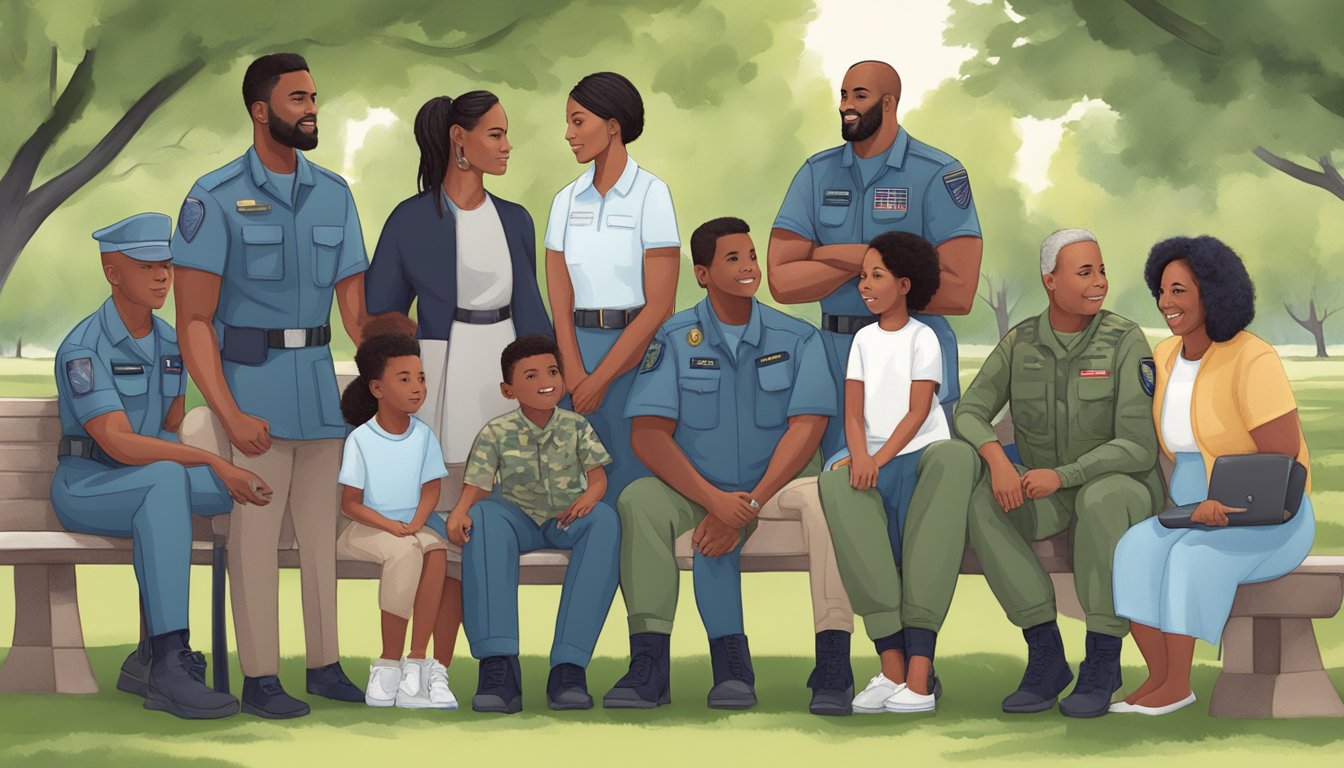As Patricia Montes Barron steps away from her post as the lead for the Department of Defense’s military community and family policy, she leaves behind an essential reminder for her successor: the spotlight must remain firmly on serving military families.
These families depend on dedicated support not just to meet their basic needs but also to have their concerns heard and acted upon.
Navigating Change Amidst Challenges
Barron’s journey at the DOD began four years ago, when she took on the role with the aim of amplifying the voices of military families within the organization.
Drawing from her personal experience as an Army spouse who moved 14 times with her now-retired husband, she consistently prioritized integrating family perspectives into the decision-making process.
Her strategy included hiring spouses of active-duty personnel and tackling issues raised by families firsthand.
A poignant example of her commitment arose in early 2021, when an Army wife voiced her frustrations with the child care registration process.
Even as she transitioned out of her role, Barron remained engaged in seeking solutions to this issue right up to her last days in office.
In 2021, a military spouse proposed a straightforward idea: streamline the child care registration process through digital means when relocating.
While the MilitaryChildCare.com platform allows families to join waitlists before moving, mandatory in-person registration at child development centers presented a significant obstacle.
This suggestion shone a light on the broader systemic challenges faced by military families when seeking support.
Barron recognized the intricate web of Pentagon bureaucracy and the technological hurdles that complicate communication.
Each branch of the military operates its own IT systems, which adds layers of difficulty to information sharing.
Although the idea of electronic registration appears simple, the reality is that enacting such a change requires substantial systemic adjustments.
While Barron did not witness this particular change come to fruition during her tenure, she remains hopeful that positive developments lie ahead.
Over the course of her four years, she and her team have confronted various challenges related to policies and programs, covering everything from child care and spouse employment to advocacy for family violence prevention and non-medical counseling services.
Progress in Support Programs for Families
Reflecting on the accomplishments achieved during her time, Barron expressed gratitude for her team’s commitment to enhancing the lives of military families.
She underscored the necessity of high-level support, which empowered them to pursue initiatives once deemed unfeasible.
Thanks to Congress’s assistance, the former Secretary of Defense’s emphasis on prioritizing personnel welfare, and efforts from initiatives like Joining Forces led by former First Lady Jill Biden, Barron’s team made meaningful progress in addressing various family-related issues.
A standout achievement during her leadership was tackling child care shortages exacerbated by the COVID-19 pandemic.
Initiatives led to a remarkable 55% reduction in waitlists for child development centers.
Key measures included improved compensation for child care staff and enhanced career development opportunities.
The office also broadened eligibility for reduced child care fees for military parents using qualified civilian providers.
By collaborating with states, the number of civilian providers meeting military standards increased, which has greatly benefited families seeking affordable child care.
In terms of employment support for military spouses, although the unemployment rate has stabilized around 20% to 21%, it represents a significant decline from the previous average of 25% over the last decade.
The expansion of My Career Advancement Account (MyCAA) scholarships has enabled more spouses to obtain vital certifications.
Barron took special pride in the launch of the Military Spouse Career Accelerator Pilot in 2023, which successfully helped place hundreds of military spouses in fellowships with private employers, thus facilitating their quest for permanent employment.
Plans are already in motion to expand the Military Spouse Employment Partnership, aiming to increase the number of employers committed to hiring military spouses.
Dedication to Ongoing Advocacy
During her time at the Pentagon, Barron consistently sought to collaborate with various offices to advocate for service members and their families.
She has not shied away from acknowledging the formidable task of navigating the complexities of the DOD.
Still, she firmly believes in the power of maintaining ongoing connections with families through open lines of communication.
Her extensive background as an advocate for military families—having previously held roles in different military-focused nonprofits—has shaped her perspective.
She underscored the importance of staying engaged with the military community to ensure effective advocacy.
If given more time, Barron would have prioritized enhancing data utilization within her office and streamlined procedures to overcome bureaucratic inefficiencies.
As she closes this chapter of her professional life, Barron reflects positively on her tenure, describing it as transformative.
She conveyed her sincere appreciation for the experience and encouraged fellow military spouses to consider pursuing similar paths in advocacy within the DOD.
Source: Militarytimes

